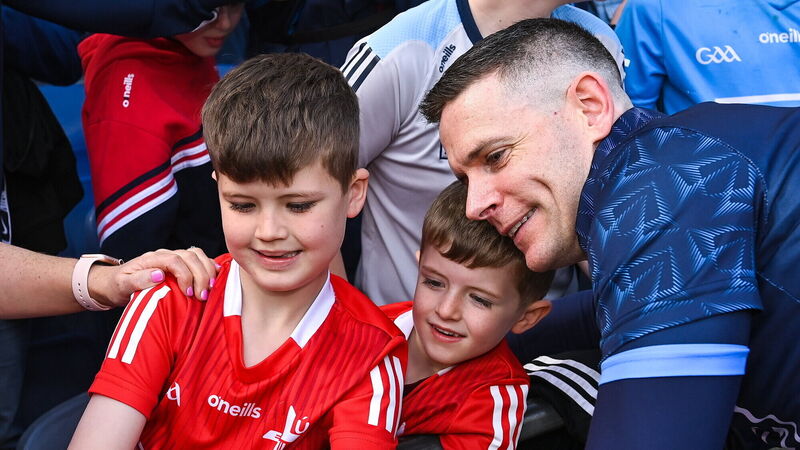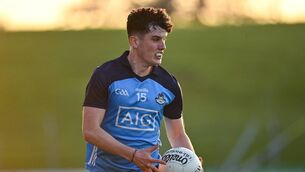Christy O'Connor: Louth's gamble never going to pay off against Dubs

NUMBER ONE FANS: Louth supporters Thias Sharkey, 9, and Harry Sharkey, 6, from Ardee take a selfie with Dublin goalkeeper Stephen Cluxton. Picture: Piaras Ó Mídheach/Sportsfile
When Dublin obliterated Kildare early on in last year’s Leinster final, Kildare’s biggest enemy was space. Kildare didn’t shut it down and Dublin gorged and feasted in the open plains. Kildare believed that they could take Dublin on in an open contest but Dublin ruthlessly showed and proved that it was a futile exercise.












